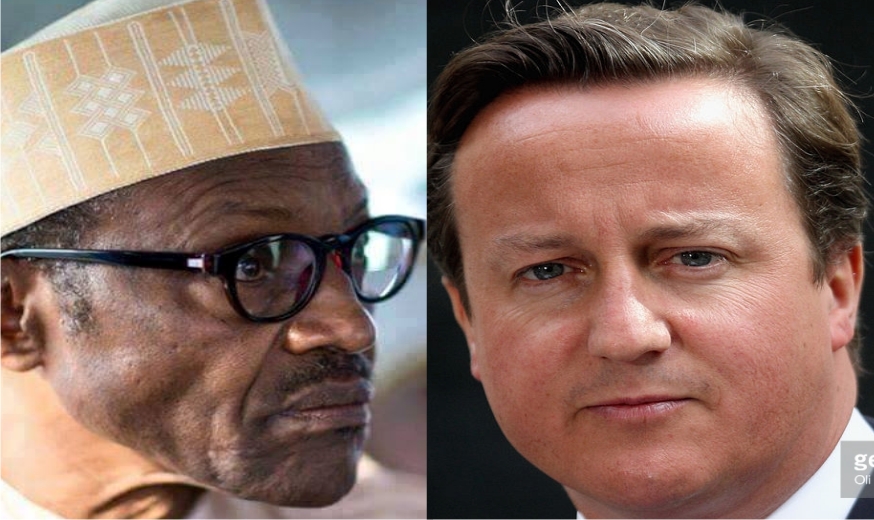Opinion
The Rape Of A Nation

When the British
Prime Minister, David Cameroon recently described Nigeria as “fantastically corrupt,” not many Nigerians were able to swallow the bitter truth. There is no doubt that the country had been, before now, riddled with corrupt practices. That is why Nigerians are today confronted with shocking revelations of how their fatherland has been raped and impoverished by successive governments.
From the time of General Ibrahim Badamosi Babangida to that of President Goodluck Ebele Jonathan, the story of rapacious greed had remained the same. There had been no clear cut policy direction but an obsessive squandermania and primitive accumulation of our commonwealth by our self-acclaimed leaders.
Unfortunately, Nigeria had poked holes in her vanity by declaring herself as Africa’s largest democracy. Nonetheless, Nigeria’s democracy leaves much to be desired. It is a country where the few affluent ones roll in luxury, the rich in splendor while the poor wallow in squalor. It is a country predicated on stupendous iniquitous inequality.
Today, the world’s 6th largest producer of crude oil has become a nation peopled with beggars. Little wonder that President Muhammadu Buhari is globe-trotting in search of alchemy for Nigeria’s economic malaise. My sympathy is for the incumbent president who has found for himself the tall order of clearing the Augean Stable.
Pathetically, our president must realise that the fight against corruption is an uphill task in a country where corruption has become a way of life. In our state government houses, on the streets, schools, ivory towers, in every nook and cranny, corruption occupies an important position. Indeed corruption walks abroad.
The corrupt people are all over the country, even walking the corridors of power at Aso Rock village. My prayer for the president is that the hunter must be careful, lest he becomes the hunted. While I sympathize with him in his puritanical quest, my advice for him is that he should not allow the jaded sensibilities of corrupt officials to becloud his vision for Africa’s largest democracy.
It took decades to get to this level of rot through the greed and avarice of ravenous wolves that have stolen the nation’s reins of power. It will certainly take some time to get out of the woods. However, according to Prof.Ola Rotimi in his novel, “The Gods Are Not to Blame’ ‘not to do something is to be crippled fast.” It is only in that perspective that one will appreciate the herculean task of clearing the Augean Stable.
A writer once described Nigeria as a fallen house. It is the bitter truth, and the debris of a fallen nation will continually kick us in the face. Jaundiced people who poke tribal sentiments at every thorny national issue will hardly understand that the anti-corruption war by the present administration is intended to liberate the nation from the shackles of underdevelopment.
A horrifying conflict is engendered when a single man, archetypal protagonist finds himself pitted against ferocious forces of an evil society. It is a re-enactment of the works of famous Green tragedians where evil prevails over good. My most strenuous objection is that the purge should not leave out sacred cows. It is our hope that the present purgation will elicit catharsis so that our country can be safe from ravenous wolves and vultures.
It is sad to recall the sordid years of General Ibrahim Badamosi Babangida and the disappearance of the Gulf War windfall. We may not also forget the Abacha loot and his proclivity for evil. What about Baba’s library project and the recent Jonathan’s arms deal that is currently being probed by the Buhari administration? The list is endless. Where and how are we going to start the purgation of this country of the nauseating avalanche of corruption that has piled over the years?
While I sympathize with President Buhari over the state of the economy, I want to urge him to brace up and do the needful to ameliorate the sufferings of the masses. This is because the recent increase in price of fuel and the poor power supply have exacerbated the pains of the masses. Austerity measure must therefore wear a human face. Part of the recovered loot from past administrations should be used to address infrastructural decay and provide employment for the teeming population of unemployment youth.
Chidi Enyie
Opinion
NDDC: Time To Illuminate Homes

Opinion
When Democracy Becomes Too Expensive

Opinion
Righteous Leadership Still Thrives

-

 News5 days ago
News5 days agoAmend Constitution To Accommodate State Police, Tinubu Tells Senators
-

 Politics5 days ago
Politics5 days agoSenate Urges Tinubu To Sack CAC Boss
-
Business5 days ago
Crisis Response: EU-project Delivers New Vet. Clinic To Katsina Govt.
-
Business5 days ago
President Tinubu Approves Extension Ban On Raw Shea Nut Export
-

 News4 days ago
News4 days agoDisu Takes Over As New IGP …Declares Total War On Corruption, Impunity
-
Business5 days ago
Fidelity Bank To Empower Women With Sustainable Entrepreneurship Skills, HAP2.0
-
Business5 days ago
President Tinubu Extends Raw Shea Nuts Export Ban To 2027
-
Sports5 days ago
NDG: Rivers Coach Appeal To NDDC In Talent Discovery

